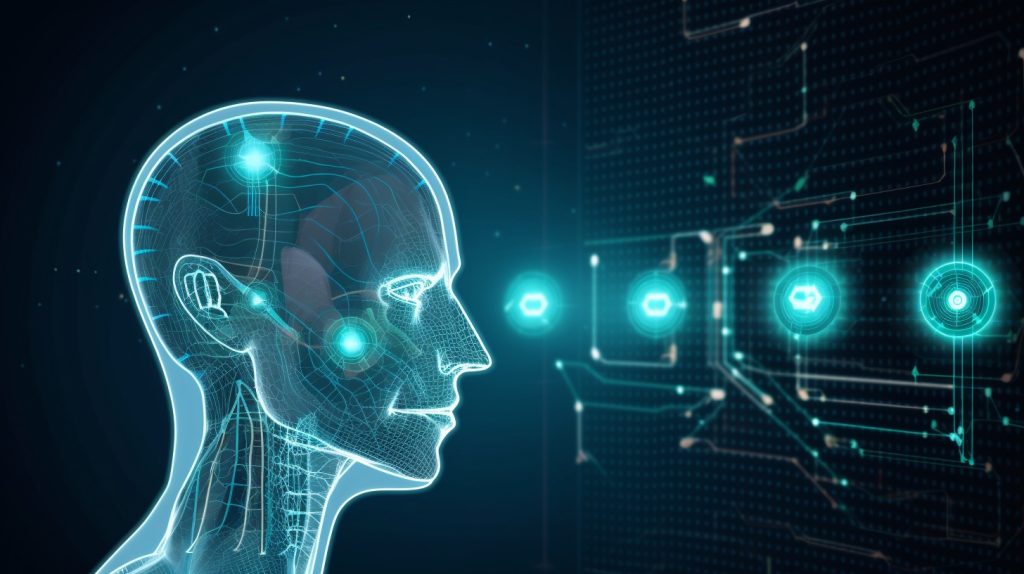Introduction
In the realm of modern healthcare, the integration of Artificial Intelligence (AI) services has emerged as a groundbreaking paradigm, revolutionizing patient care and diagnosis. This transformative technology is reshaping the way healthcare professionals deliver services, improving patient outcomes, and enhancing the overall efficiency of the healthcare system. This article delves into the profound impact of AI services in healthcare, exploring how these advancements are paving the way for a brighter and healthier future.
AI-Powered Patient Care
One of the most significant contributions of Artificial Intelligence services in healthcare is its ability to personalize patient care. Remote patient monitoring, facilitated by AI-driven applications, allows healthcare providers to track patients’ vital signs and health metrics in real-time. This continuous monitoring ensures timely intervention and personalized medical attention, especially for patients with chronic conditions.
Predictive analytics, powered by AI algorithms, enables healthcare professionals to anticipate potential health issues before they escalate. By analyzing patient data, AI can identify patterns and trends, aiding in disease prevention and early intervention strategies. Moreover, AI enhances patient engagement and satisfaction through interactive applications, empowering individuals to actively participate in their healthcare journey.
Another area where AI services excel is medication management. AI-driven systems can optimize medication schedules, ensuring patients adhere to their prescriptions. Smart reminders and dosage alerts significantly improve medication adherence, leading to better health outcomes and reduced hospitalizations.
AI-Driven Diagnostic Tools
AI has revolutionized diagnostic processes, particularly in medical imaging. AI-based algorithms analyze X-rays, MRIs, and CT scans with unparalleled accuracy, assisting healthcare professionals in identifying anomalies and making precise diagnoses. Early detection of diseases, including cancer, is now possible through AI-driven screening tools. These innovations have a profound impact on treatment outcomes, enabling timely interventions and increasing the chances of successful recovery.
In the realm of pathology and laboratory diagnostics, AI services have proven invaluable. AI algorithms can analyze vast datasets, assisting pathologists in identifying patterns that might be missed by the human eye. This collaborative approach enhances diagnostic accuracy, reducing the margin of error and leading to more reliable results.
Natural Language Processing (NLP) in Healthcare
Natural Language Processing (NLP) is another facet of AI services that has found its place in healthcare. NLP technology translates human language into valuable insights, making it indispensable for medical documentation. Healthcare professionals can now dictate their notes, and AI-driven systems convert speech into text, streamlining the documentation process. This not only saves time but also ensures accurate and detailed medical records, essential for patient care and research.
Moreover, NLP applications facilitate communication between healthcare professionals and patients. Virtual assistants and chatbots, powered by NLP algorithms, engage with patients, providing information, scheduling appointments, and addressing queries. These virtual assistants enhance the patient experience, ensuring that individuals receive timely and accurate responses to their concerns.
Challenges and Ethical Considerations
While the integration of AI services in healthcare presents unparalleled opportunities, it also comes with its set of challenges and ethical considerations. Privacy concerns and data security are paramount, especially when dealing with sensitive patient information. Ensuring robust data protection measures and compliance with regulatory standards is essential to maintain patient confidentiality and trust.
Ethical implications, such as biases in AI algorithms, demand careful consideration. AI systems learn from data, and if the input data is biased, it can lead to discriminatory outcomes. Addressing these biases and ensuring transparency in AI algorithms are vital steps toward ethical AI implementation in healthcare.
Success Stories and Case Studies
Numerous success stories and case studies highlight the transformative impact of AI services in healthcare. From early cancer detection to personalized treatment plans, these examples underscore the tangible benefits experienced by patients and healthcare providers alike. Real-life testimonials from professionals and patients illuminate the positive outcomes, demonstrating how AI-driven solutions are shaping the future of healthcare.
Future Trends and Innovations
Looking ahead, the future of AI services in healthcare holds promising advancements. Emerging technologies such as Internet of Things (IoT) and blockchain are expected to integrate seamlessly with AI, enhancing the efficiency and security of healthcare operations. Predictive analysis suggests that AI will continue to evolve, becoming an indispensable tool for healthcare professionals, enabling more accurate diagnoses, efficient treatments, and personalized care plans.
Conclusion
In conclusion, the integration of AI services in healthcare represents a monumental leap forward for the industry. From personalized patient care and early disease detection to streamlined diagnostics and enhanced communication, AI is reshaping healthcare practices, making them more efficient, accurate, and patient-centric. While challenges exist, the potential benefits are immeasurable, promising a future where healthcare is not only more advanced but also more compassionate and accessible. As AI services continue to evolve, they will undoubtedly play a pivotal role in improving patient care and diagnosis, ensuring a healthier world for all.
